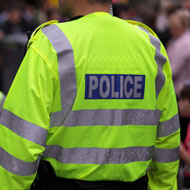Possible link between cat killings under investigation

Northamptonshire Police confirmed it has liaised with Metropolitan Police but at the stage the cases remain Northamptonshire investigations.
Two cats that were recently killed and dismembered in Northamptonshire bore similar wounds to those seen on victims of a serial animal killer who has so far eluded capture.
In August, a pet cat was mutilated and left on its owner’s doorstep in a bag, where it was discovered by the family’s 14-year-old daughter. The incident occurred just days after their other cat was found in the Kingsley area of Northampton, having been deliberately set on fire.
This month, another pet cat was killed and left outside its owners home, also in Northampton. The 15-year-old cat’s dismembered body was found in a carrier bag on the path outside the front door.
A spokesperson from South Norwood Animal Rescue Liberty (SNARL) said: ‘There are correspondences between the wounds seen on the two Northampton cats and the wounds seen on victims of the UK animal killer’.
A spate of killings in south London prompted the nickname ‘Croydon cat killer’, however SNARL has urged people to stop using this name as similar attacks have occurred in Manchester, Birmingham, Brighton and the Isle of Wight. Tony Jenkins, head of SNARL, told the Guardian that 250 cats have been killed in similar circumstances since October 2015.
Northamptonshire Police confirmed it has liaised with Metropolitan Police but at the stage the cases remain Northamptonshire investigations.
SNARL is investigating the Northamptonshire cases alongside cases elsewhere in the UK. The SNARL spokesperson added: ‘There are however some circumstances which could mean these are standalone offences, so equally we are keeping an open mind about them.’
Post-mortems are currently being carried out on the two cats.



 The Animal and Plant Health Agency (APHA) has updated its online reporting service for dead wild birds.
The Animal and Plant Health Agency (APHA) has updated its online reporting service for dead wild birds.